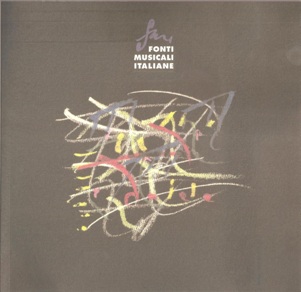Il Fondo della Società Teatrale Internazionale (1908-1913) presso l'Archivio Storico Capitolino
Abstract
La Società Teatrale Italo-Argentina (S.T.I.A.) e la Società Teatrale Internazionale (S.T.In.) vennero fondate rispettivamente nel 1907 e nel 1908, la prima a Buenos Aires e la seconda a Roma, per iniziativa di due grandi organizzatori: l'impresario Walter Mocchi e il Conte Enrico di San Martino e Valperga (allora presidente dell’Accademia di Santa Cecilia). Presso l'Archivio Storico Capitolino di Roma è conservata una cospicua documentazione – inedita e finora sconosciuta - relativa alle vicende della S.T.In. e della S.T.I.A. negli anni 1908-1913, che ci consente di tracciare una prima storia di queste due società e di approfondire la conoscenza della storia della gestione dei teatri italiani agli inizi del nostro secolo. Nei diciannove faldoni – in corso di inventariazione - sono presenti, suddivise in centinaia di fascicoli e sottofascicoli, lettere di personaggi-chiave quali Walter Mocchi, Enrico di San Martino, Enrico Polese e Pietro Mascagni, contratti stipulati con gli artisti, convenzioni fra la s.t.i.a. e la s.t.in. e fra quest’ultima ed il Comitato esecutivo per i festeggiamenti del 1911.
La S.T.I.A era stata fondata da Mocchi allo scopo di organizzare e gestire le stagioni liriche dei maggiori teatri sudamericani, avvalendosi di compagnie provenienti dall'Italia e pronte ad affrontare tournées oltre Oceano nei mesi in cui i nostri teatri erano chiusi. Per realizzare al massimo quest'ambizioso obiettivo, era necessario alla S.T.I.A controllare anche un buon numero di teatri italiani, il che fu possibile grazie alla creazione della S.T.In., società che procedette all'acquisto del Teatro Costanzi di Roma e che si assicurò la gestione di alcuni dei maggiori teatri del nostro Paese (Regio di Torino, Regio di Parma, Petruzzelli di Bari, Carlo Felice di Genova, il Politeama Adriano di Roma): la presidenza della S.T.In. fu assunta dal Conte di San Martino. Nata come appendice italiana della S.T.I.A., la S.T.In. mostrò ben presto le proprie velleità autonomistiche: la società puntava a controllare la vita teatrale romana e ad organizzare la grande stagione del 1911, per i festeggiamenti del cinquantenario dell’Unità d’Italia. La diversità di intenti e la molteplicità delle forze in campo crearono forti attriti e resero la vita delle due Società assai movimentata. Il saggio ripercorre queste vicende, con particolare riferimento alle stagioni del teatro Costanzi di Roma (in quel periodo affidato a Mascagni), basandosi oltre che sulla documentazione d’archivio anche sulle testimonianze dei quotidiani romani.
*****
The fondo of the Società Teatrale Internazionale at the Capitoline Historic Archives
The Società Teatrale Italo-Argentina (S.T.I.A.) and the Società Teatrale Internazionale (S.T.In.) were founded respectively in 1907 and 1908 (the first at Buenos Aires and the second at Rome) on the initiative of two eminent organizers: the impresario Walter Mocchi and Count Enrico di San Martino e Valperga (at that time president of the Accademia di Santa Cecilia). The Capitoline Historic Archives of Rome houses a conspicuous collection of documents - unpublished and until now unknown - relative to the vicissitudes of the S.T.In. and of the S.T.I.A. during the period 1908-1913, which have enabled us to outline for the first time the history of these two companies and to obtain a detailed picture of the management of Italian theatres at the beginning of the twentieth century. The nineteen main folders - in course of being inventoried - contain, divided into hundreds of files and subfiles, letters written by key-personalities like Walter Mocchi, Enrico di San Martino, Enrico Polese and Pietro Mascagni, contracts stipulated with artists, agreements between S.T.I.A. and S.T.In. and between the latter and the Executive Committee for the festivities in 1911. The S.T.I.A. was founded by Mocchi for the purpose of organizing and managing the opera seasons of leading South American theatres, engaging companies from Italy prepared to tour overseas during the months in which Italian theatres were closed. In order to realize this ambitious objective in the best possible way, it was essential for the S.T.I.A. to gain control also of a good number of Italian theatres, which proved possible thanks to the creation of the S.T.In., a company that proceeded to acquire the Teatro Costanzi of Rome and take over the management of some of the major Italian theatres (Regio of Turin, Regio of Parma, Petruzzelli of Bari, Carlo Felice of Genoa, Politeama Adriano of Rome); the Conte di San Martino was nominated president of the S.T.In. Created as an Italian subsidiary of the S.T.I.A., the S.T.In. soon showed its wish to be autonomous: the company aimed at controlling the theatrical world of Rome and at organizing the grand season of 1911 in celebration of the fiftieth anniversary of the Unity of Italy. The diversity of aims and the many interests involved created strong disagreements and made the relations between the two companies very turbulent. The paper retraces these events, with particular reference to the seasons of the Teatro Costanzi in Rome (at that time directed by Mascagni), based not only on archival documentation but also on reportages in the Roman daily newspapers.
Downloads
Published
Issue
Section
License
© CIDIM
Tutti i diritti riservati


